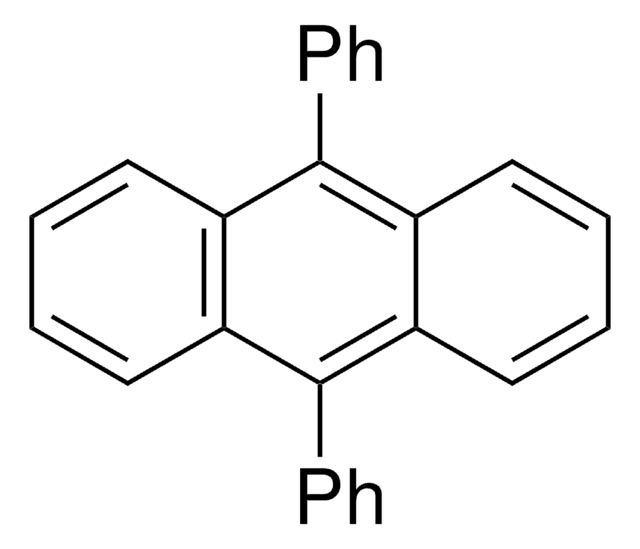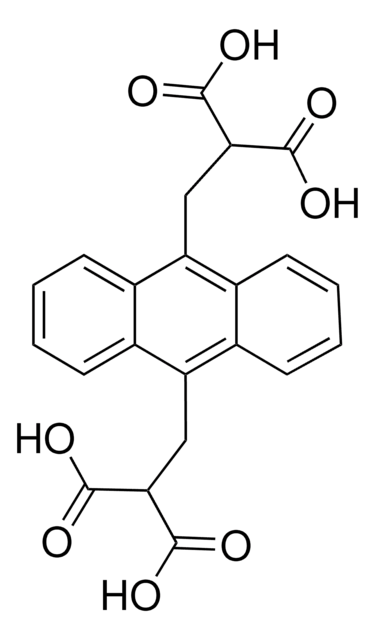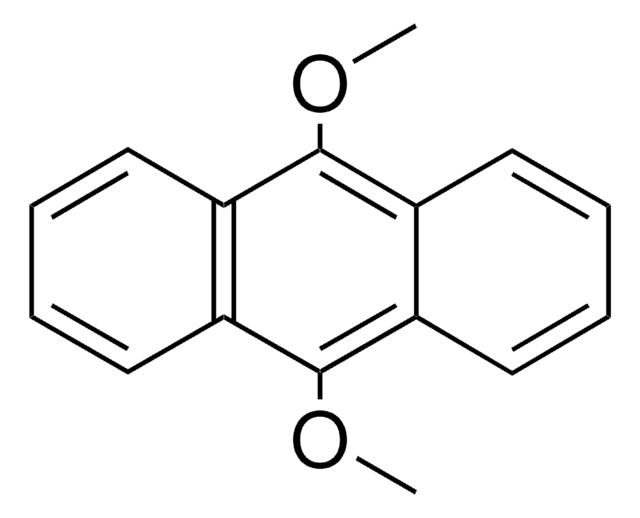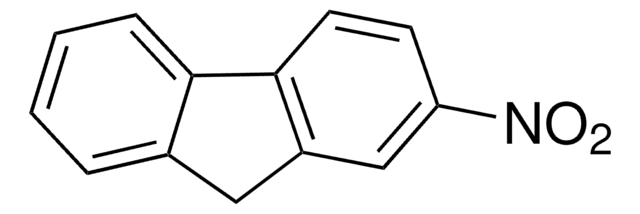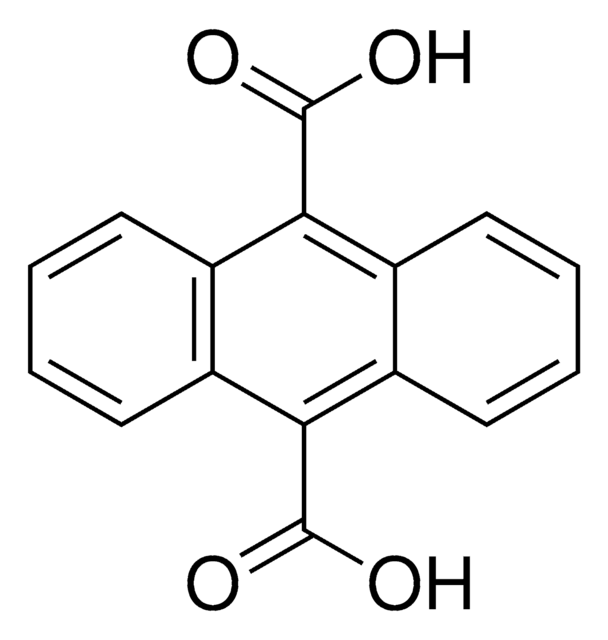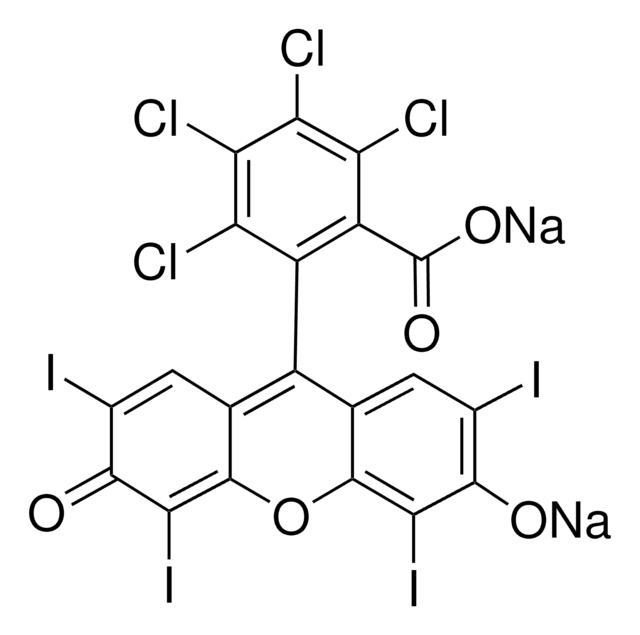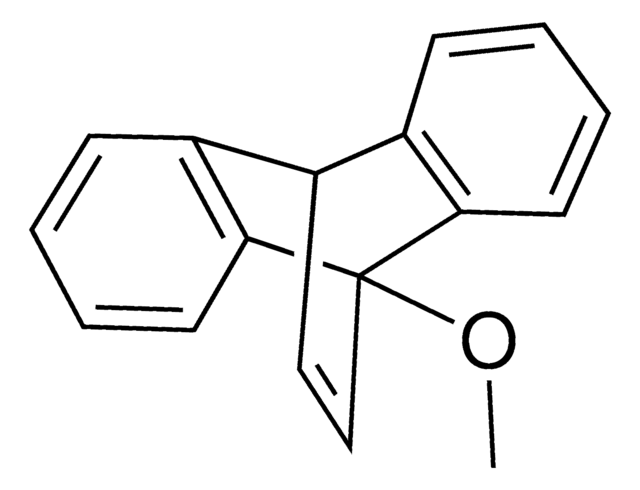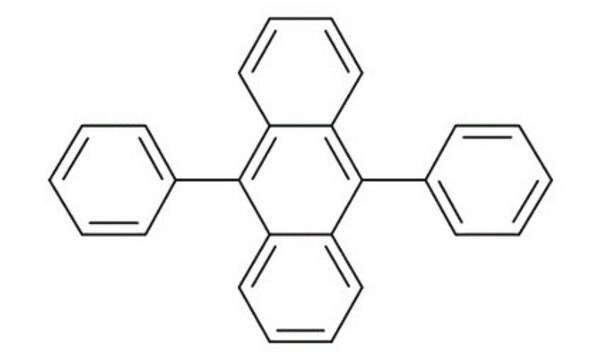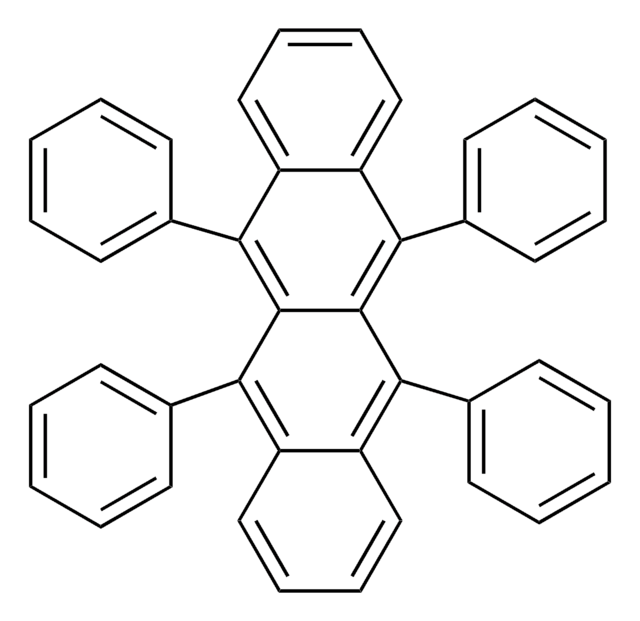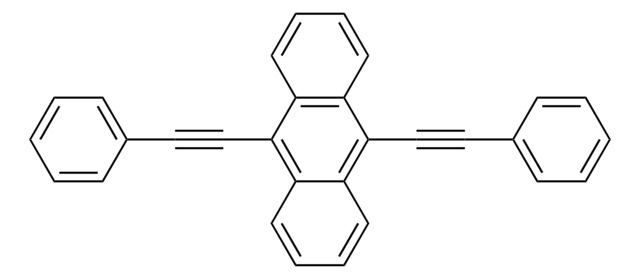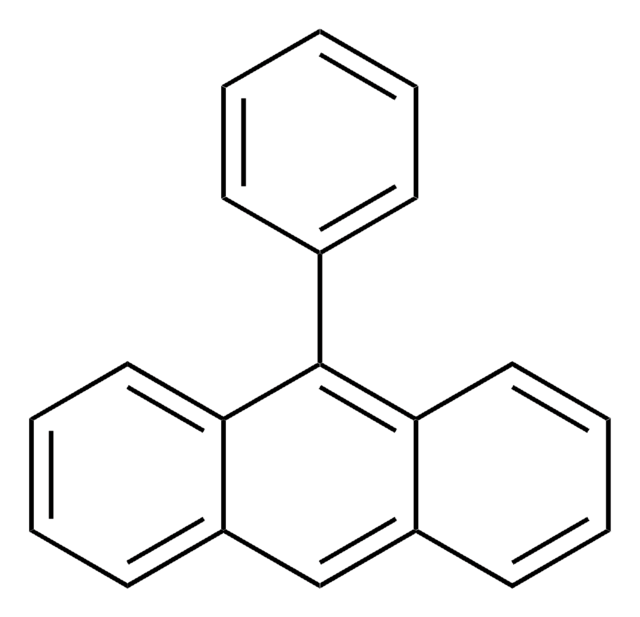D146706
9,10-Dimethylanthracene
99%
Sinonimo/i:
9,10-Dimethylanthracene
About This Item
Prodotti consigliati
Saggio
99%
Forma fisica
crystals
Punto di fusione
182-184 °C (lit.)
Stringa SMILE
Cc1c2ccccc2c(C)c3ccccc13
InChI
1S/C16H14/c1-11-13-7-3-5-9-15(13)12(2)16-10-6-4-8-14(11)16/h3-10H,1-2H3
JTGMTYWYUZDRBK-UHFFFAOYSA-N
Cerchi prodotti simili? Visita Guida al confronto tra prodotti
Avvertenze
Danger
Indicazioni di pericolo
Consigli di prudenza
Classi di pericolo
Acute Tox. 4 Dermal - Acute Tox. 4 Inhalation - Resp. Sens. 1 - Skin Sens. 1
Codice della classe di stoccaggio
11 - Combustible Solids
Classe di pericolosità dell'acqua (WGK)
WGK 3
Punto d’infiammabilità (°F)
Not applicable
Punto d’infiammabilità (°C)
Not applicable
Dispositivi di protezione individuale
dust mask type N95 (US), Eyeshields, Faceshields, Gloves
Scegli una delle versioni più recenti:
Possiedi già questo prodotto?
I documenti relativi ai prodotti acquistati recentemente sono disponibili nell’Archivio dei documenti.
I clienti hanno visto anche
Il team dei nostri ricercatori vanta grande esperienza in tutte le aree della ricerca quali Life Science, scienza dei materiali, sintesi chimica, cromatografia, discipline analitiche, ecc..
Contatta l'Assistenza Tecnica.